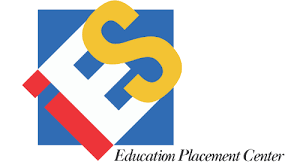Study in Canada from Malaysia

Are you planning to pursue higher education abroad? Canada has become one of the top destinations for international students, offering world-class education, cultural diversity, and excellent career opportunities.
If you are considering making Canada your study destination, Inquota Education is here to guide you every step of the way.
Why Choose Canada for Your Studies
Canada is home to some of the best universities and colleges in the world, known for their academic excellence, research opportunities, and innovative learning approaches. International students are welcomed into a safe and multicultural society, with strong support systems to help them adjust to life abroad.
The country’s education system is globally recognised, making Canadian qualifications highly valued by employers and institutions worldwide. Students also benefit from a high standard of living, modern facilities, and affordable tuition compared to other top study destinations.
Understanding the Canadian Education System
Understanding how Canada’s universities and colleges work is an important step in any guide to study abroad, helping you make informed choices about your future. Canada’s education system is divided into:
- Colleges and Institutes: Focused on practical training, diploma and certificate programmes, and applied degrees. These are ideal if you are looking for hands-on learning experiences that prepare you directly for the workforce.
- Universities: Known for offering undergraduate and postgraduate degrees, Canadian universities are globally recognised for their academic standards. Many universities rank among the top worldwide, offering strong research facilities and diverse study programmes.
- Language Schools: Canada also provides English and French language training for students who want to improve their language proficiency before entering higher education.
One of the benefits of the Canadian education system is flexibility. Students can often transfer credits between institutions and have the option to switch between college and university pathways.
Benefits of Studying in Canada
Choosing to study in Canada provides students with more than just academic qualifications. Here are some of the most compelling advantages:
- Quality of Education: Canadian degrees, diplomas, and certificates are recognised across the globe.
- Affordable Tuition: Compared to countries like the USA, UK, or Australia, Canada offers lower tuition fees without compromising on quality.
- Work Opportunities: Students are allowed to work part-time while studying and full-time during scheduled breaks, which helps manage living expenses.
- Pathway to Immigration: Many international students remain in Canada after graduation, using their study and work experience to apply for permanent residency.
- Safe and Inclusive Environment: Canada is consistently ranked among the safest countries in the world, with a welcoming and multicultural population.
What Is Student Life Like in Canada?

International students in Canada enjoy a vibrant and inclusive lifestyle. Cities such as Toronto, Vancouver, Montreal, and Calgary are hubs for student communities, cultural events, and job opportunities. Canada’s natural beauty also allows students to explore outdoor activities such as skiing, hiking, and camping.
Universities and colleges provide strong student support services, including career counselling, housing assistance, and mental health resources. This ensures that international students not only excel academically but also feel at home during their studies.
Costs of Studying in Canada
Studying abroad is a significant investment, and Canada is known for offering excellent value for money. Tuition fees vary depending on the programme and institution, but undergraduate courses generally range between CAD 15,000 to CAD 25,000 per year. Postgraduate programmes may range from CAD 20,000 to CAD 30,000 per year.
Living costs, including accommodation, food, transport, and other expenses, average between CAD 10,000 and CAD 15,000 annually. Students can offset some of these costs by working part-time during their studies.
Explore More About Studying in Canada
Canada provides endless opportunities for international students, whether you are looking for career advancement, academic research, or cultural exploration. It is important to research different provinces and institutions, as each region offers unique benefits and opportunities. For example, Quebec provides education in both English and French, while Ontario and British Columbia are known for their large international student populations.
Scholarships and financial aid are also widely available, helping international students reduce their education expenses. Inquota Education Services (IES) can provide personalised advice on applying for scholarships and selecting the best institutions for your academic goals.
Take the Next Step with Inquota Education
Studying in Canada opens the door to world-class education, a safe and inclusive environment, and outstanding career opportunities. With so many options available, it can be challenging to make the right decision. That is where Inquota Education comes in.
Our experienced consultants specialise in guiding students through every stage of the process, from choosing the right university or college to preparing applications, securing visas, and arranging accommodation. With our expertise, you can feel confident about your journey to study in Canada.
Contact us today and let us help you achieve your dream of studying in Canada.
Success Stories From Our Global Applicants
FAQs About Studying in Canada
Admission requirements vary depending on the institution and programme. Generally, you will need academic transcripts, proof of English or French language proficiency, and in some cases, standardised test scores such as IELTS, TOEFL, or GRE.
Yes. International students are allowed to work up to 20 hours per week during academic sessions and full-time during holidays or scheduled breaks.
Undergraduate degrees typically take three to four years, while postgraduate degrees can take one to two years depending on the programme.
Yes. Many Canadian universities and government bodies offer scholarships and financial aid to international students based on merit or need.
Yes. Many students use their Canadian education and work experience to qualify for immigration programmes such as the Post-Graduation Work Permit (PGWP) and the Express Entry system.
